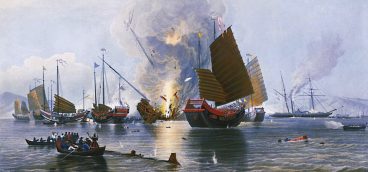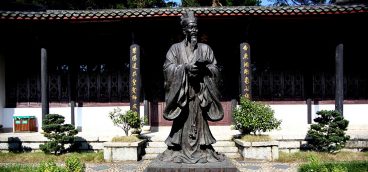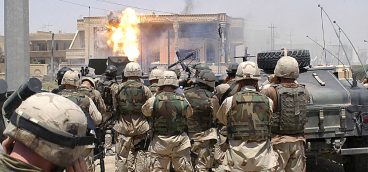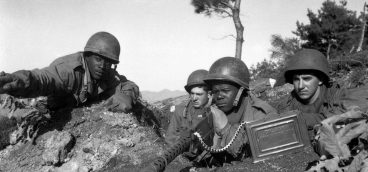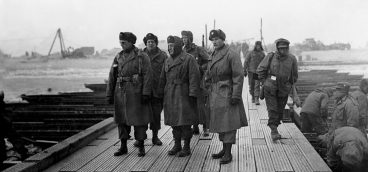A Different Outcome in North Korea
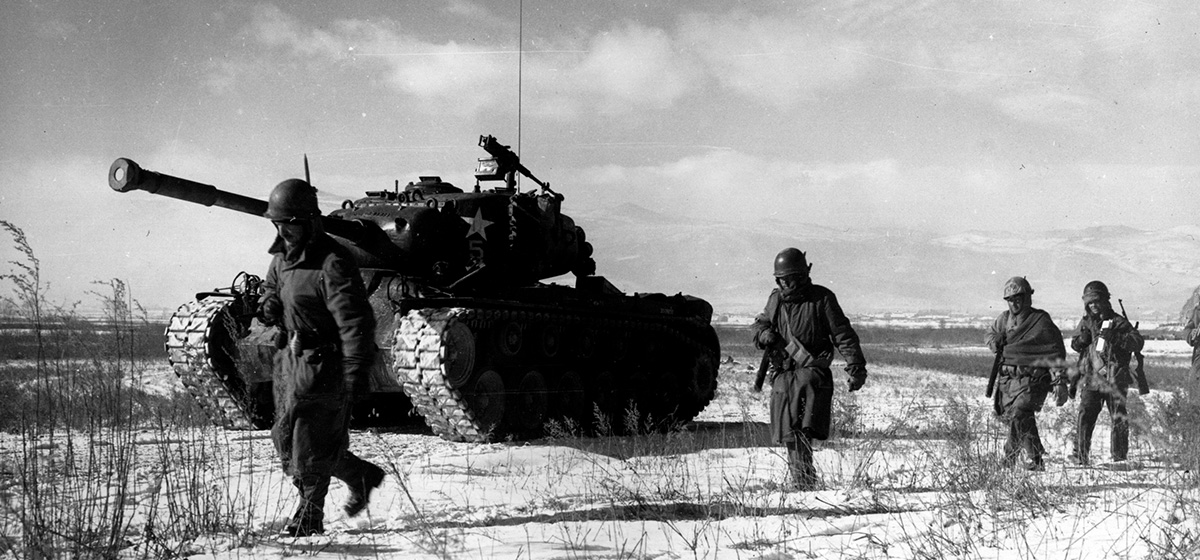
“The art of war teaches us to rely not on the likelihood of the enemy not coming, but on our readiness to receive him.” –Sun Tzu, “The Art of War,” Chapter 8
Let’s suppose that President Truman hadn’t had the good sense to put Sun Tzu in charge of Korea until almost too late—after the North Koreans had pushed the ROK army and its American advisors almost into the sea.
At that point, Truman and his advisors would have recognized the folly of American policy in Korea between 1945 and 1950 and put out the call for Gen. Sun. What would he have done differently than what Gen. MacArthur did?
At first, probably very little. MacArthur beefed up the tenuous defensive perimeter around Pusan in the southeast and then launched a dazzling amphibious invasion at Inchon in the northwest, effectively trapping the hapless North Koreans between the two powerful American armies.
But then MacArthur’s ego got the better of him. He recaptured Seoul, pressed north across the 38th parallel, captured Pyongyang, and continued his attack all the way to the Yalu River, which formed the border between North Korea and China.
After that, as we know, disaster ensued. The Chinese entered the war in force, defeated the ROK army, humiliated the American Eighth Army, and very nearly won the war right there. That’s a mistake Sun Tzu would not have made.
As noted in the quote that began this post, it is crucial to plan not just for what you think the enemy will do, but for what he is capable of doing. MacArthur was sure the Chinese wouldn’t intervene in the Korean War because they didn’t want to risk a wider war with the United States.
That wasn’t a frivolous opinion, but it turned out to be a wrong one. Indeed, it should have been obvious even at the time that MacArthur was wrong. After all, Zhou Enlai had warned the United States, the UN, and anyone else who would listen that China wouldn’t tolerate an American army on its border.
As early as August of 1950, Zhou told the UN, “Korea is China’s neighbor [and] the Chinese people cannot but be concerned about a solution of the Korean question.” Using neutral-country diplomats, Zhou warned that if necessary to safeguard Chinese national security, they would intervene. Truman and MacArthur dismissed these warnings as “blackmail.”
But it wasn’t just talk. Only five days after the North invaded the South, the Chinese already had observers and advisors in Korea, and as the weeks and months went by China’s involvement deepened. In late September, Zhou specifically warned that China would be prepared to intervene if the United States crossed the 38th parallel.
None of this would have surprised Sun Tzu. The mistake MacArthur made was to assume the Chinese wouldn’t invade and therefore not plan for such an event.
But if the Chinese were able to intervene in the war, which they manifestly could do, then that was something Sun Tzu would have taken into account, whether he thought an invasion was likely or not.
How might Sun have conducted himself, recognizing the possibility of a Chinese invasion? Mainly, he would have avoided, insofar as was possible, threatening the Chinese.
Instead of pushing the remaining units of the Korean People’s Army all the way to—and beyond—the Yalu River, on China’s border, Gen. Sun would likely have stopped just beyond Pyongyang.
Capturing the capital of North Korea was important for several reasons. First, it forced Kim Il-sung and his government to retreat into the northern mountains. Second, it undermined KPA morale. Third, if Pyongyang could be held, it meant there was very little left of what used to be North Korea.
Gen. Sun might have established a line starting at Sukchon and Sunchon in the west, where two parachute jumps had been made, cutting the roads north from Pyongyang to the Chinese border. The line would extend through the mountains to Wonson and Munchon on the east coast, which had been captured by the ROK army.
At that point, with the KPA destroyed but the United States still nearly 400 miles from the Yalu, Sun would have opened cease-fire talks. There would have been a great deal of bravado from Kim (especially) and the Chinese, but Mao and Zhou would likely have found a stalemate at that point much to their liking.
Kim had already been removed by the Chinese as the commander of military forces in Korea, and with Kim and his defeated army stranded in the mountains the Chinese could have treated him like the puppet the Americans had assumed he was all along (albeit wrongly).
Ending the fighting before the Chinese found it necessary to invade would have resulted in huge and long-term benefits, including these:
- American combat deaths in Korea would have been dramatically reduced, from over 36,000 to under 10,000. ROK army deaths and civilian deaths would also have been very substantially reduced, and of course Chinese deaths would have been virtually eliminated—instead of the estimated 900,000 Chinese who died.
- North Korea would still have existed, but it would have been a small, relatively unpopulated, mountainous country with little industry to speak of. China would have treated North Korea the way it treats, say, Tibet—as a puppet regime that is virtually a part of China.
- The mischief associated with North Korea between 1953 and today would have been almost entirely avoided.
In other words, “the art of peace” in Korea would have been employed not to create an absence of war, but to create a much more delimited, shorter, and less destructive war, while also establishing the groundwork for a less-troublesome peace thereafter.


